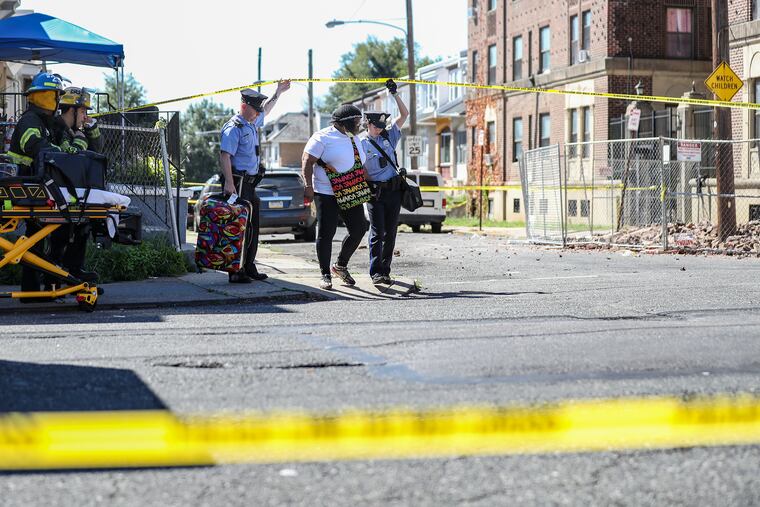Judge rules Logan apartment owners must keep residents displaced by collapse housed in hotels
An upper part of the seven-story building collapsed Sept. 14, forcing around 100 residents to evacuate their homes. About 20 displaced families were still living in hotels as of last week.

The company that manages a Logan apartment building that partially collapsed must continue to house displaced residents until they find new units, a judge ruled this week.
SBG Management, which manages the Lindley Towers apartment building that partially collapsed in September, must continue to pay for hotels for displaced tenants seeking units in properties owned by the company until they find a new unit, Philadelphia Common Pleas Judge Anne Marie B. Coyle ruled Tuesday.
Coyle also ruled that SBG must pay for hotels for all tenants through Nov. 14, even if they were not seeking alternate units through the company, she said.
A call to SBG Management was not returned Friday.
The ruling came four days after residents were given less than a day’s notice that they would have to check out of hotels they had been staying in while waiting for alternate housing. That move would have displaced about 20 families who had been staying in hotels in Bensalem since the Lindley Towers collapse.
Community Legal Services filed an emergency motion Oct. 28 seeking to have SBG continue paying, and the city said it would pay for the hotel rooms for a few more days. The court granted the motion the same day and ordered the management company to hold off on any action, including pushing tenants out of hotels, until Tuesday’s hearing.
On Sept. 14, an upper part of the seven-story building collapsed, forcing around 100 residents to evacuate. No injuries were reported.
Residents have not been able to move back into their apartments. Many tenants at the time complained that much of the building was in poor condition, with vacant, deteriorating apartments, bedbugs, and renovations that had been planned but never finished.
The building had been cited almost 200 times since 2007, according to Licenses and Inspection Department records. At the time, a city spokesperson said none of the open cases were structural in nature.
In September, the city sued the owner of the apartment building, demanding repairs and nearly $1.5 million for fines and other costs.
As part of the city’s lawsuit, a judge ruled that before a tenant signs a lease for a unit, the unit must have a license, a certificate of rental suitability, and no violations with L&I, said Osarugue Grace Osa-Edoh, an attorney for the tenants through Community Legal Services, a nonprofit legal aid agency.
A judge also ordered that tenants have the option to take moving assistance payments instead of a new apartment offered by SBG, she said. Tenants are eligible for moving assistance payments of more than $3,500 for a two-bedroom and more than $2,900 for a one-bedroom, she said.
Community Legal Services also previously filed a lawsuit against the owner, demanding emergency relief and claiming that the building had long dealt with vermin infestations and that residents were living with leaks, mold, and broken appliances.